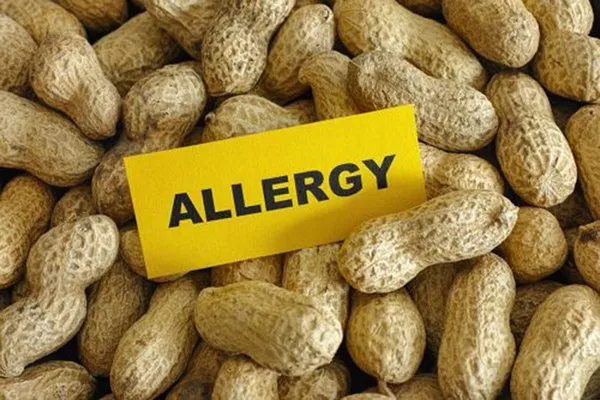Peanut allergy is one of the most common food allergies, affecting millions of people worldwide. For expectant mothers, the concern about peanut allergy extends beyond their own health to the well-being of their unborn child. This article explores the current understanding of peanut allergy during pregnancy, risk factors, prevention strategies, and considerations for mothers-to-be and their healthcare providers.
Understanding Peanut Allergy
Peanut allergy is an immune-mediated hypersensitivity reaction to proteins found in peanuts. Symptoms of peanut allergy can range from mild itching or hives to severe anaphylaxis, a life-threatening allergic reaction characterized by difficulty breathing, drop in blood pressure, and loss of consciousness.
While the exact cause of peanut allergy remains unclear, it is believed to involve a complex interplay of genetic, environmental, and immunological factors. Research suggests that early exposure to peanuts, particularly during infancy, may play a role in either preventing or sensitizing individuals to peanut allergy.
Prevalence of Peanut Allergy
The prevalence of peanut allergy has been steadily increasing in recent decades, posing a significant public health concern. According to estimates, peanut allergy affects approximately 1-2% of the population in Western countries, with rates varying by geographic region and demographic factors.
Among children, peanut allergy is one of the most common food allergies, often persisting into adulthood. The rising prevalence of peanut allergy has prompted increased attention to prevention strategies, particularly during critical periods such as pregnancy and early childhood.
Risk Factors for Peanut Allergy in Infants
Several factors have been identified as potential risk factors for the development of peanut allergy in infants:
Family History: Children with a family history of peanut allergy or other allergic conditions, such as eczema or asthma, are at increased risk of developing peanut allergy themselves.
Early Introduction: Delayed introduction of peanuts into the infant diet, particularly after six months of age, has been associated with an increased risk of peanut allergy. Early and regular consumption of peanuts during infancy may help reduce the risk of developing peanut allergy.
Atopic Dermatitis: Infants with atopic dermatitis (eczema), a common inflammatory skin condition, may have an increased risk of developing peanut allergy. Disruption of the skin barrier in eczematous skin may allow for increased allergen exposure and sensitization.
Environmental Factors: Environmental factors, such as exposure to airborne allergens or pollutants, may contribute to the development or exacerbation of peanut allergy in susceptible individuals.
Peanut Allergy During Pregnancy: Myth vs. Reality
There is often confusion and misinformation surrounding the role of maternal peanut consumption during pregnancy and its impact on the risk of peanut allergy in offspring. Here are some common myths and realities:
Myth: Avoiding Peanuts During Pregnancy Prevents Allergy: It was once believed that avoiding peanuts during pregnancy and breastfeeding could reduce the risk of peanut allergy in infants. However, current evidence suggests that maternal avoidance may actually increase the risk of peanut allergy in offspring.
Reality: Early Introduction May Prevent Allergy: Emerging research indicates that early introduction of peanuts, both during pregnancy and infancy, may help prevent the development of peanut allergy in children at high risk. This contradicts previous recommendations for strict avoidance.
Myth: Eating Peanuts During Pregnancy Causes Allergy: Some expectant mothers may fear that consuming peanuts during pregnancy could trigger an allergic reaction in their child. However, unless the mother herself is allergic to peanuts, eating peanuts is generally safe and may even be beneficial for allergy prevention.
Reality: Consultation with Healthcare Providers is Key: Pregnant women should consult with their healthcare providers, including obstetricians, allergists, and pediatricians, to discuss individual risk factors, dietary recommendations, and allergy prevention strategies.
Preventing Peanut Allergy During Pregnancy
While there is no guaranteed way to prevent peanut allergy, especially in individuals with a strong genetic predisposition, there are several strategies that expectant mothers can consider to reduce the risk of peanut allergy in their children:
1. Early Introduction: Introducing peanuts into the maternal diet during pregnancy and breastfeeding may help sensitize the infant’s immune system to peanuts and reduce the risk of allergy. However, this should be done under the guidance of a healthcare provider, particularly in high-risk cases.
2. Moderate Consumption: Moderate consumption of peanuts or peanut products during pregnancy is generally considered safe for most women. However, those with a personal history of peanut allergy or other allergic conditions should exercise caution and consult with their healthcare providers.
3. Diversified Diet: In addition to peanuts, pregnant women should consume a varied and balanced diet rich in fruits, vegetables, whole grains, lean proteins, and healthy fats. A diverse diet during pregnancy may help expose the fetus to a wide range of nutrients and allergens, potentially reducing the risk of allergy.
4. Avoidance of High-Risk Foods: While moderate consumption of peanuts is generally safe, pregnant women should avoid excessively high-risk foods, such as raw peanuts or peanut products with added sugar, salt, or other additives.
5. Breastfeeding: Exclusive breastfeeding for the first six months of life is recommended by healthcare experts as the optimal source of nutrition for infants. Breast milk contains antibodies and other immune factors that may help protect against allergies and support the developing immune system.
6. Allergy Testing and Monitoring: Pregnant women with a personal or family history of peanut allergy or other allergic conditions should undergo appropriate allergy testing and monitoring. This can help identify potential allergens and guide allergy prevention strategies during pregnancy and infancy.
Conclusion
Peanut allergy is a common and potentially serious condition that affects individuals of all ages, including infants and children. While there is no guaranteed way to prevent peanut allergy, early introduction of peanuts during pregnancy and infancy may help reduce the risk of developing peanut allergy in children at high risk.
Expectant mothers should consult with their healthcare providers to discuss individual risk factors, dietary recommendations, and allergy prevention strategies. By staying informed, following evidence-based guidelines, and working closely with healthcare professionals, pregnant women can take proactive steps to promote the health and well-being of themselves and their children.
[inline_related_posts title=”You Might Be Interested In” title_align=”left” style=”list” number=”6″ align=”none” ids=”9486,9494,9490″ by=”categories” orderby=”rand” order=”DESC” hide_thumb=”no” thumb_right=”no” views=”no” date=”yes” grid_columns=”2″ post_type=”” tax=””]
































